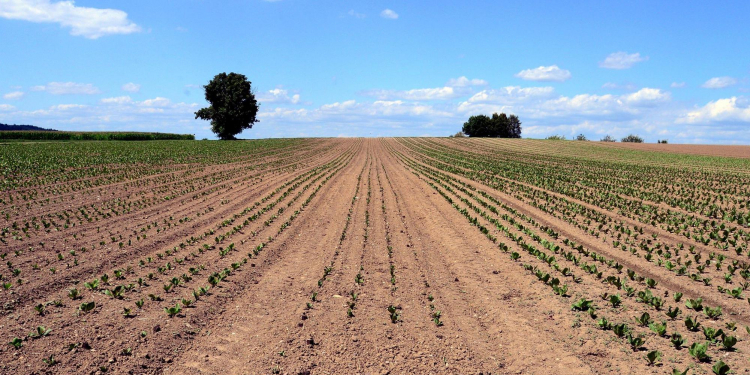The Pesticides Initiative calls for a ban on synthetic pesticides in Switzerland and a ban on imports of food produced with pesticides. It will not be put to the vote until next year, but this is already being debated.
The farmers’ association and various associations of the food industry have had An expert report on the economic impact of the initiative prepared by Charles Gottlieb of the University of St. Gallen. This concludes that Swiss agriculture would produce 30 percent less food. The share of local farmers in the Swiss food supply would fall from 60 percent today to 42 percent.
The reason for this decline is that organic farming has less yieldons on the same area than on traditional farms. The authors have transferred this data to the initiative to calculate the impact on yields. “It’s the best possible assumption,” says study author Charles Gottlieb. He points out that nowhere has there been any definition of what synthetic pesticides are, which the initiative wants to ban. But in organic farming they are forbidden.
Fewer potatoes and pork
According to the study, the difference in yield is not the same for all products. It is significant for potatoes or pigs, but small for cereals and beef. Organic livestock farming needs more grassland and farms have 23 percent fewer animals per hectare, which would reduce production.
Moreover, if it had to be produced without pesticides, it would no longer be worthwhile to grow certain foods. According to the study, the initiative would greatly complicate the supply of sugar beet, fruit, vines, vegetables and potatoes, as well as pork. Milk and cereal production would hardly be affected.
Initiative does not bring organic farming
The initiators write on request that their initiative would not mean a switch to organic farming. “The pesticide initiative only wants to eliminate synthetic pesticides,” says Natalie Favre, spokeswoman for the initiative committee. Organic farming is more restrictive than the initiative and also prohibits the use of synthetic fertilisers and antibiotics. Fertilisers would have a major impact on yields. However, these remained allowed like antibiotics.
The study takes a different view: the initiative provides for a ban on all synthetic pesticides, and thus even goes beyond the organic standard. The authors refer to the Federal Council’s message. He writes that microbial and enzymatic syntheses are also affected by the initiative. And natural substances are also synthetically produced because they are too rare. These would be banned with the initiative, for example pheromones. Seen in this way, the loss of earnings could be even higher.
“The outage could be compensated by less food waste.”Natalie Favre, Initiative Committee
The initiators also expect a loss of earnings. A long-term study by the research institute for organic farming, which is close to her, assumes a 20 percent drop in yields. “This failure could easily be compensated by a reduction in the food waste, which accounts for 30 percent of total production,” says Favre.CONTINUE AFTER THE ADVERTISEMENT
In addition, the study assumes that agriculture will not change. “The study overlooks the shift from agricultural land to more production for humans, the development of new agricultural techniques, research, innovation and waste prevention,” says Favre. The study takes a different view: since organic farms have on average five times higher losses than conventional farms and these losses are offset by more direct payments, the initiative would worsen the profitability of Swiss agriculture.
In an unrepresentative survey of the food industry, the study also identifies additional costs for companies to meet hygiene standards without pesticides. Since the import of food made with synthetic pesticides would be prohibited, companies that process coffee or cocoa beans, for example, fear disadvantages. The import ban could also contradict existing free trade agreements.







